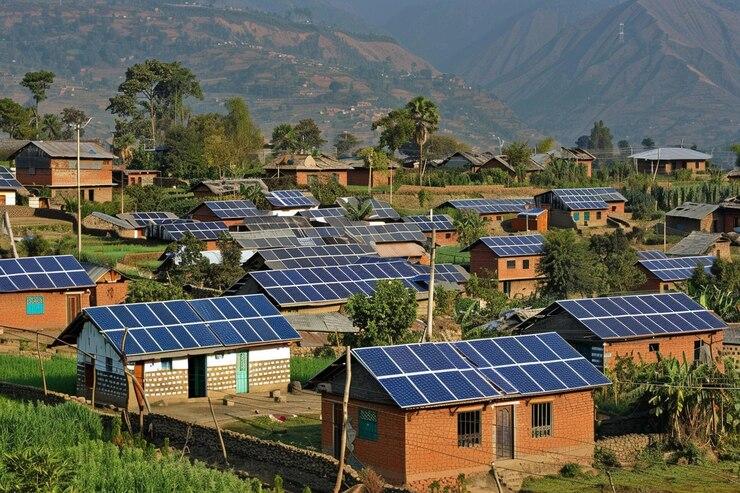As Pakistan faces rising electricity costs and frequent power outages, more homeowners are turning to solar energy as a sustainable and cost-effective solution. However, determining the appropriate solar system for your home involves several calculations to ensure your investment is optimal for your energy needs. In this blog, we will break down the process of solar system calculation for homes in Pakistan, helping you make an informed decision.
5 Step to Solar System Calculation for Home
Step 1: Assess Your Household’s Energy Needs
The first step in determining the right solar system for your home is calculating your energy consumption. You can do this by reviewing your electric bills over the last 12 months. Your bill will show the number of units (kilowatt-hours, or kWh) you consume each month. In Pakistan, the average household consumes between 300-500 kWh monthly.
Here’s a simple calculation to estimate your energy needs:
- Find your average monthly energy consumption.
- Multiply it by 12 to get your annual energy consumption.
- Use this annual figure to determine the solar system size required to meet your needs.
For example, if your home uses 400 kWh per month on average, your annual consumption will be:
400 kWh x 12 months = 4800 kWh/year
This will help you understand how much energy your solar system should generate.
Step 2: Calculate the Solar System Size
Once you know your energy consumption, you need to calculate the size of the solar system. This involves estimating how many kilowatts (kW) of solar panels are needed to meet your annual energy requirements. Typically, in Pakistan, a 1 kW solar system produces about 4-5 kWh of electricity per day, depending on weather conditions and location.
For instance, if your home consumes 4800 kWh per year and each kilowatt of solar panels produces 4 kWh per day (on average), you would need a solar system that can generate approximately 13.15 kWh per day:
4800 kWh/year ÷ 365 days = 13.15 kWh/day
Assuming each kW of solar panels generates 4 kWh/day:
13.15 kWh ÷ 4 kWh/day = 3.29 kW system
Therefore, a 3.3 kW solar system would be sufficient for a household with these energy requirements.
Step 3: Factor in Battery Storage (Optional)
If you’re looking to go off-grid or want backup power during outages, you should consider battery storage as part of your solar system calculation. A typical solar battery in Pakistan can store anywhere from 3-15 kWh, depending on the size and type of battery you choose.
To calculate the battery size, assess how many hours of backup power you require and match it with the total capacity of your solar batteries. If you want 10 hours of backup power and your average household consumption is 1 kWh per hour, you’ll need a 10 kWh battery storage system.
Step 4: Use a Solar System Cost Estimator
A solar system for home installation in Pakistan involves several components, including solar panels, inverters, batteries, and installation costs. To simplify this process, you can use a Solar System Cost Estimator. This online tool helps you estimate the total cost based on your energy consumption, the size of the solar system, and any additional storage requirements.
Step 5: Consult a Professional for an Accurate Assessment
For a more tailored solution, it’s crucial to consult with solar energy experts who can perform a detailed site assessment. The amount of sunlight your home receives, the angle of your roof, and the efficiency of your panels all play a role in determining the ideal system. You can contact MaxGreen Energy for a free consultation and a custom solution that meets your energy needs.
Benefits of Installing a Solar System in Pakistan
- Energy Cost Savings: Solar power reduces or eliminates your monthly electricity bills.
- Energy Independence: With solar panels and battery storage, you can enjoy uninterrupted power during load-shedding.
- Environmentally Friendly: Solar energy is a clean, renewable source that helps reduce your carbon footprint.
Why Choose MaxGreen Energy?
MaxGreen Energy is a trusted name in Pakistan’s solar industry, offering a range of solar systems for homes. With years of experience and advanced technology, they ensure high-quality installations and reliable customer support. Their experts can guide you through every step of your solar system calculation and installation.
Conclusion
Solar system calculation for homes in Pakistan may seem complex, but with the right information and professional guidance, it’s easier than you think. By understanding your energy needs, calculating the system size, and considering factors like battery storage, you can make an informed decision about your investment in solar power. Use the Cost Estimator to get an initial idea and reach out to MaxGreen Energy for a detailed assessment and installation.
Take control of your energy future today with solar power, and enjoy lower bills and reliable electricity in the years to come.


